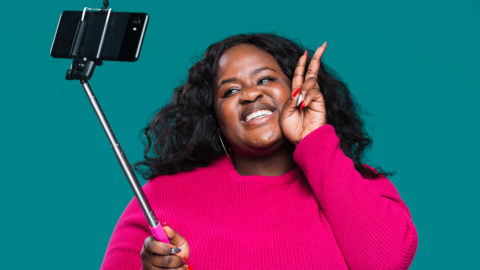Staycations gaining ground as hotels step up competition
Airbnb has revolutionized the hospitality industry, offering customers reduced prices in a sector where hotels earn their biggest margins.
Since 2008, nothing has tested the resilience of the hotel industry like Airbnb revolution. In response, hotels, globally have had to adjust their rates, change their models, and cross-sell their services to adapt to the onslaught on their market share.
Analysts, predict that vacation rentals will surpass the hotel industry within the decade.
Today, however, with the outbreak of COVID-19, both hotels and home-sharing platforms like Airbnb have taken a hit. Industry, experts, however, are optimistic that the sector will rebound before the second quarter of 2021 as governments lift the strict coronavirus containment measures.
“The hotel industry is a tried and tested model that has thrived for over a century. Any challenges posed by the outbreak of coronavirus or even onslaught from Airbnb may disrupt the industry for a short period, but will not drive us out of business,” says Modocha Ochola, General Manager, Victoria Comfort Inn, Kisumu.
According to the Kenya Private Sector Alliance (KEPSA), tourism and education sectors were the most hit due to closures and travel restrictions. In a survey conducted between May and June 2020, the tourism and hospitality sector reported a 97% negative impact on account of the pandemic.
Interestingly, the outbreak of coronavirus has ushered in an era of staycation— having a holiday within one’s town— an innovation that is keeping the lights on for the wider hotel industry, especially small hotels and Airbnb.
“The broader industry is trying to focus on the positive trends,” says Ivan Macharia an owner of an Airbnb facility in Nairobi. “Since the government started relaxing the lockdown measures, we have started witnessing a surge in bookings; this is a positive sign that the travel industry will recover, but we will have to be positive and adapt such trends like staycation.”
Most Kenyans, especially, urban dwellers are exploring more since the intercounty travel ban was lifted in June. Over the weekends, Masai Mara, Ngong Wind Power, Naivasha, and Mombasa are registering more visitors, especially from Nairobi.
It is reported that the Standard Gauge Railway (SGR) has witnessed a surge in bookings since the lockdown was lifted, an indication of increased intercounty travel; while the Kenya Forest Service (KFS) said in a recent report that the country’s forests and woodlands have recorded an increase in foot traffic during the pandemic.
“I spend more time at home these days. Since the outbreak of coronavirus was announced in March, we started working from home, my kids are also just staying in-doors. This has been overwhelming, so we spend as much time as possible away from the house during the weekend,” says Vanessa Kwamboka.
“The pandemic has stymied global travels, nonetheless, local tourism is increasing. Individuals that had planned to travel out of the country have been hindered by strict travels and fears of contracting the disease in foreign lands. This has revamped local tourism, today we are operating at 50% booking,” Mr. Ochola noted.
While local tourism seems to be picking up, foreign travel agencies are not getting as much attraction. It is expected that the resumption in domestic and foreign travel will boost the tourism sector.
“Airbnb has become the preferred lodging type in this era of social distancing,” says Amy Wahome, a serial traveler. “They are more reserved and you get special treatments from the hosts. I find them more authentic than the hotels, and their offerings are more social-distancing appropriate.”
Like tens of other travelers that spoke to Moolah, Amy reserved her staycation through Airbnb. We also have a group of backpackers and those going for unplanned travels to exotic local places around Mount Kenya, Northern Kenya, and parts of Rift Valley.
“I’ve been living nomadically for a decade, staying in my fair share of both hotels and Airbnb,” says Bonita Aluoch, a seasoned traveler and content creator at Bonita on Safari. “The pandemic has wrecked the travel industry; however, Airbnb has been opened the entire time so they haven’t been as badly hit as the traditional hotels.”
Most hotels in Kenya, like their global counterparts operate on the MICE – Meetings, Incentives, Conferences and Exhibitions— model which is very profitable. However, with COVID-19 containment measures, conferences have been canceled, while exhibitions have remained mostly gloomy, meetings and incentives have also been zapped.
“The road to recovery may be a long one, but I am confident that hotels will emerge from the negative impact of coronavirus on travel and hospitality business. Hotels are already complying with the cleaning standards as prescribed by the Ministry of Health and other measures to ensure they are not epicenters for COVID-19, this should be a confident booster and may likely see a surge in bookings in the coming months,” Bonita added.
Beyond health standards, hotels are also coming up with all-inclusive packages offering customers additional services including health and wellness services at discounted rates, free delivery, car-wash to customers, flexible booking and cancellation policies, all to attract customers.
Although the verdict is still out there on who will recover faster from the impact of the pandemic, Airbnb is holding the outperformance crown as their model is much easier to adjust and they are not subjected to stringent health standardization social-distancing policies, while hotels have to contend with gloomy reduced occupancy, reduced conferences and depressed holiday leisure traffic.




